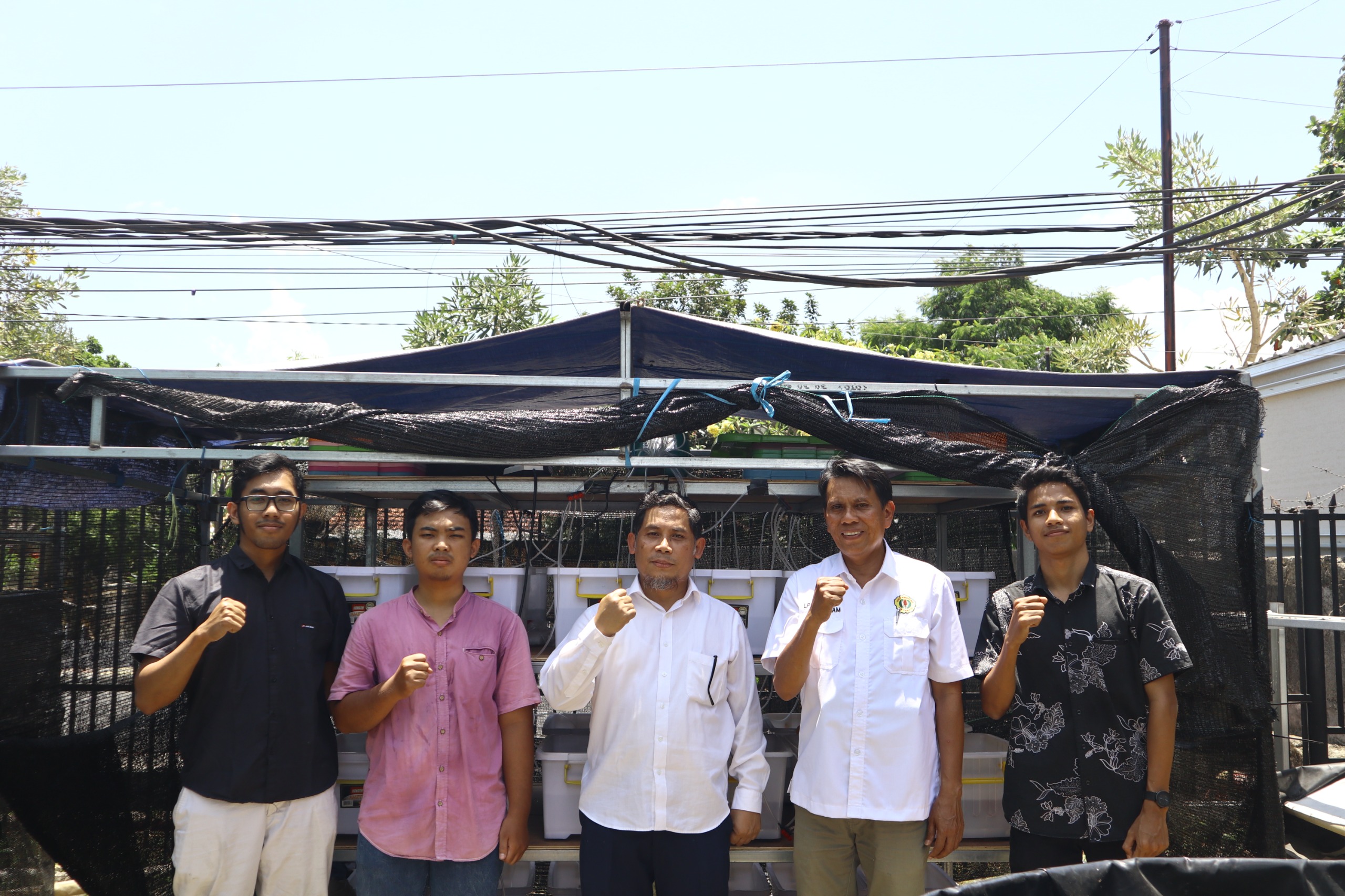KATALIS: Synergy Between Unram, IPB, ULM, and ITK Encourages Sustainable Innovation through Utilization of Macroalgae to Support Blue Economy

Mataram, University of Mataram – On Friday, September 20, 2024, University of Mataram (Unram) through the Research and Community Service Institute (LPPM) launched the Strategic Research Collaboration Program (KATALIS) led by Dr. Eng. Obie Farobie from Institut Pertanian Bogor (IPB).
This Katalis is the result of collaboration between several leading universities in Indonesia, including Lambung Mangkurat University (ULM), Kalimantan Institute of Technology (ITK), University of Mataram (Unram), and various expert researchers in the fields of bioenergy, pyrolysis, nanomaterials, and Internet of Things (IoT) technology.
Since 2021 to 2023, a team of researchers from IPB has been exploring the potential of Indonesian macroalgae, especially Sargassum sp. and Eucheuma sp., to produce syngas and high-value chemicals. This research is expected to provide innovative solutions to utilize Indonesia’s abundant natural resources, as well to reduce environmental impacts.
On the other hand, a team from ULM has been conducting research on bio-oil production using hydrothermal gasification since 2016. The research aims to develop a new method of synthesizing nanobiochar from the resulting product, which can be used in renewable energy applications.
ITK also plays an active role in KATALIS with research on macroalgae pyrolysis. Researcher Dr. Eng. Apip Amrullah suggested that pyrolysis technology can convert macroalgae into environmentally friendly energy products.
Unram, represented by Dr. Misbahuddin, has been developing Internet of Things (IoT) network technology since 2015. The team has successfully overcome various challenges in wireless sensor networks, including node synchronization, data optimal route finding, and node clustering based on spatial and temporal data.
The focus of KATALIS research for the 2024-2025 period is the simultaneous modification of nanobiochar and CaTiO3 using impregnation and hydrothermal methods. This aims to form nanohybrid photocatalyst materials that can decradate hazardous compounds, as well as optimize the conditions and reactions in the process.
In an interview on Friday (20/9), Dr. Ir. Misbahuddin, ST, MT, IPU. said, “The utilization of Internet of Things (IoT) innovation in macroalgae cultivation in Indonesia is an important step in realizing the vision of a sustainable blue economy.”
With IoT technology, we can monitor and manage the environment of macroalgae growth in real-time, improve production efficiency, and reduce negative impacts on marine ecosystems. The integration of these technologies will not only increase productivity, but also help us manage marine resources in a more responsible and sustainable manner.
“I believe that with collaboration between various parties, we can optimize the potential of macroalgae as a source of food, energy, and industrial raw materials, while supporting environmental conservation efforts,” said Dr. Ir. Misbahuddin.
With the synergy of various fields of science and institutions, KATALIS is expected to be a pioneer in the development of sustainable technology in Indonesia, as well as contribute to more environmentally friendly energy solutions. The researchers are confident that this collaboration will pave the way for further innovations and have a positive impact on society and the environment.
Ir. Muhamad Syamsu Iqbal, S.T., M.T., Ph.D. as a member of this collaborative research emphasized, “The Strategic Research Collaboration Program (KATALIS) is a significant step for Universitas Mataram in improving our Main Performance Indicators (IKU) and reputation at the national and international levels. Through collaboration with IPB, ULM, and ITK, we not only strengthen research in the field of sustainable technology and macroalgae utilization, but also increase academic capacity and innovation within the campus.”
“Active participation in KATALIS allows us to produce relevant and applicable research, as well as provide opportunities for students to be directly involved in impactful projects, supporting our vision to become a leading university that contributes to sustainable development and the blue economy in Indonesia,” said Ir. Muhamad Syamsu Iqbal.
With these various initiatives and research, KATALIS is committed to bring significant positive changes in resource management and energy technology in Indonesia.
